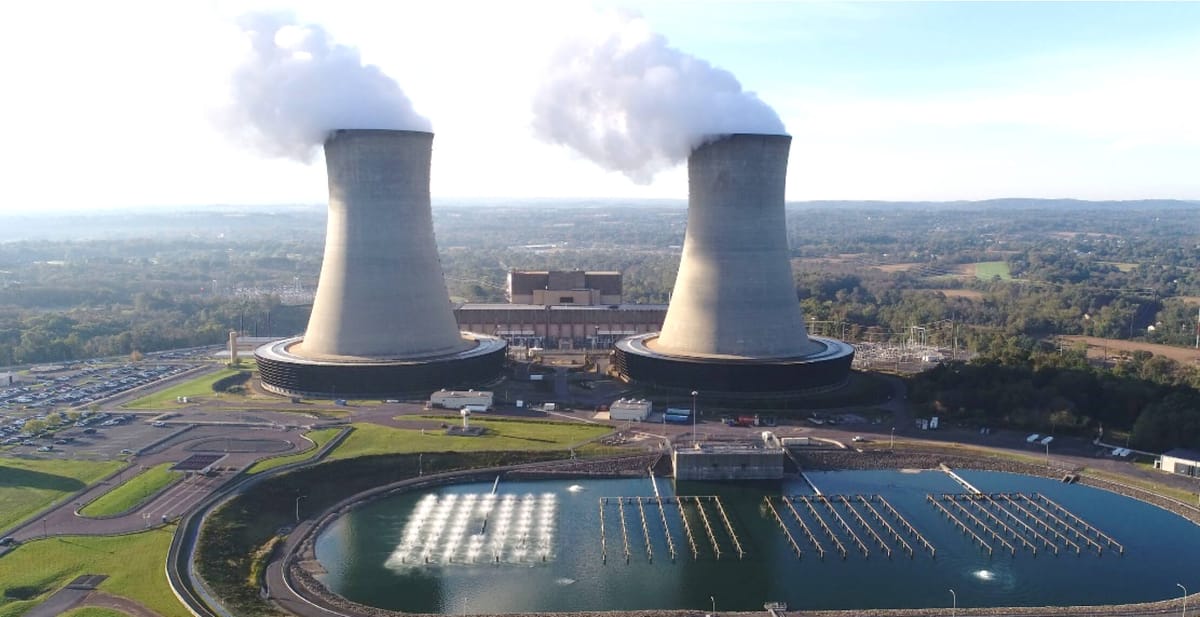
Big Tech's ambitious plans to power AI with nuclear energy are facing serious obstacles. Federal regulators have rejected Amazon's proposal to tap more power from a Pennsylvania nuclear plant, while Meta's similar plans were derailed by environmental concerns including the discovery of a rare bee species.
These setbacks highlight a growing challenge: Tech companies need massive amounts of reliable power for their AI operations, but securing it isn't as simple as striking deals with nuclear plants.
For Amazon, the setback came as the Federal Energy Regulatory Commission (FERC) rejected a proposal that would have allowed the company to significantly expand its power usage from the Susquehanna nuclear plant in Pennsylvania. The proposal aimed to increase Amazon's access to power from the plant for its nearby data centers. However, FERC, in a 2-1 vote, rejected the amendment, citing concerns about grid reliability and the potential impacts on other customers in the region.
Neighboring utility companies, including American Electric Power and Exelon, opposed Amazon's deal, arguing it would give Amazon preferential treatment and unfairly shift costs onto other consumers. They also raised concerns about the lack of clarity on metering and billing if power were diverted from the grid. Ultimately, FERC concluded that Amazon's regional grid operator, PJM Interconnection, failed to adequately justify the necessity of the proposal.
FERC Chairman Willie Phillips, who dissented, argued that the decision was a setback for both electric reliability and national security, emphasizing the importance of reliable power for the development of AI technologies. Still, the majority of commissioners felt that approving the amendment would set a problematic precedent that could destabilize the power grid and drive up costs.
"This isn't just about one company or one power plant," said Commissioner Mark Christie. "These arrangements could have huge implications for grid reliability and consumer costs."
The stakes are particularly high as AI development drives unprecedented power demands. A single AI query now uses up to ten times more energy than a standard Google search. This has pushed tech companies to seek guaranteed access to carbon-free power sources that can run 24/7.
Meta's ambitions faced a different kind of hurdle. The company's plans to build an AI data center powered by a nuclear plant were derailed when a rare bee species was found on the proposed construction site, raising environmental concerns. Mark Zuckerberg, Meta's CEO, highlighted these regulatory and environmental challenges during a recent all-hands meeting, expressing frustration at the difficulties of securing nuclear energy options in the United States, especially compared to China's rapid expansion of its nuclear capacity.
Not all nuclear partnerships have stalled. Microsoft's plan to restart Three Mile Island continues to move forward, and Google recently ordered several small modular reactors from Kairos Power, becoming the first tech company to commission new nuclear plants directly.
The challenges come as tech companies plan massive investments in AI infrastructure. Amazon alone expects to spend over $75 billion on capital expenditures this year, largely driven by AI-related cloud services. It has also invested $500 million into developing small modular reactors (SMRs) to support its long-term energy needs, while Meta is exploring alternative nuclear energy deals.
Yet with eight similar power-sharing proposals awaiting review, the current regulatory framework threatens to slow America's AI advancement. The challenge now becomes finding a balance between necessary oversight and the urgent need to build robust infrastructure for AI development—before other countries take the lead.
For tech companies caught between innovation demands and regulatory requirements, the path forward remains unclear. While China is building nuclear reactors "at a fast clip," U.S. tech giants face a maze of regulatory hurdles that could determine whether America maintains its AI edge.
The irony isn't lost on industry observers: in trying to protect current infrastructure, regulators might be inadvertently hampering the development of next-generation technology that could define America's economic future.

